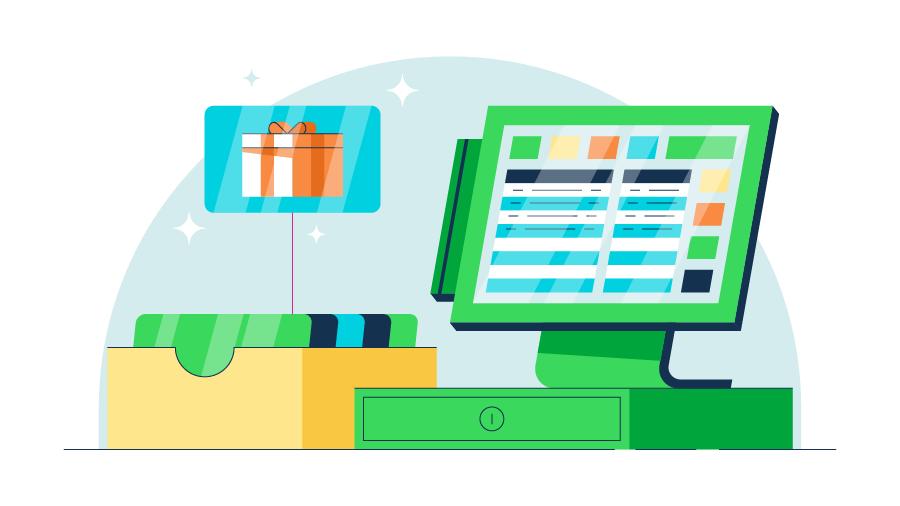To mitigate the effects the coronavirus has had on the economy, large and small businesses are seeking financial assistance to help them get through. An abundance of resources are available to business owners who employ workers, but many self-employed and gig economy workers are still looking for help. About 36% of all U.S. workers participated in the gig economy in 2018, according to Gallup. That number was expected to grow. But the ripple effects of social distancing and shelter-in-place orders have reached gig workers. So what relief is available to gig workers? Read on to find out.

Relief for gig workers and freelancers during the coronavirus outbreak
Federal relief for gig workers and freelancers
The Families First Coronavirus Response Act includes provisions for a refundable tax credit for self-employed workers under the law’s Emergency Paid Sick Leave Act (EPSLA). Self-employed workers may file for a tax credit for emergency paid sick time taken for eligible coronavirus-related reasons.
Eligible self-employed workers can receive up to $511 per day for up to 80 hours total in tax credits if they are subject to quarantine or contract COVID-19. Self-employed workers caring for someone affected by COVID-19 can receive two-thirds of their daily income, up to $200 per day for 80 hours total in tax credits. And self-employed workers who are caring for children whose school or daycare has closed due to COVID-19 can receive tax credits for an additional 10 weeks of lost work at two-thirds of their daily income or up to $200 per day. Unfortunately, the law doesn’t apply to all gig workers.
The Coronavirus Aid, Relief,and Economic Stimulus (CARES) Act provides relief for gig workers. The record $2.2 trillion relief bill provides the following benefits to qualified gig and eligible self-employed workers:
- Unemployment benefits.
- Forgivable loans through the Paycheck Protection Program (PPP), if certain requirements are met.
- Administrative forbearance on qualifying federal student loan payments.
Qualified unemployed workers can receive an additional $600 from their state Department of Labor through the “Federal Pandemic Unemployment Compensation ” This additional unemployment is available for every week they do not make an income, up to four months. That’s in addition to state unemployment benefits. How much a gig worker will be eligible to receive depends on their previous income (the sum of which cannot exceed $100,000 in a year) and state unemployment laws.
The CARES Act would also qualify taxpayers to receive the $1,200 per-person payout for those making less than $75,000 a year. The IRS considers payments taxable income, and workers can expect payments in three or more weeks since the bill became law.
The Paycheck Protection Program (PPP)
The CARES Act also allows eligible independent contractors, solopreneurs, and self-employed individuals to apply for financial assistance via a loan through the Paycheck Protection Program. Eligible self-employed workers can submit applications as of April 10, 2020.
Self-employed workers may be eligible for a PPP loan if:
- They were operational on February 15, 2020.
- They are individuals with self-employment income (such as independent contractors or sole proprietors).
- Their principal place of residence is in the United States.
- They filed or will file a Form 1040 Schedule C for 2019.
Loans amounts are determined based on whether you have employees on payroll.
If you are self-employed and do not have employees, your loan amount would be calculated using your net profits from 2019 (as shown on line 31 of your 2019 Form 1040 Schedule C), and will be approximately 2.5x that amount.
If you are self-employed and have employees, your loan amount would be calculated using your net profits from 2019 plus your payroll costs (gross wages plus other costs, such as for health care, retirement, and taxes) and will be approximately 2.5x that amount.
For loan calculation purposes, annual owner compensation and employee salary amounts are capped at $100,000 per year. Loan amount calculation must also include any Economic Injury Disaster Loan (EIDL) loan amount used for the same purpose, less any advance.
The SBA has not yet provided guidance on how individuals not in operation in 2019 can apply.
Subject to certain restrictions, self-employed individuals may use proceeds of a PPP loan for any of the following uses:
- Owner compensation replacement (calculated based on 2019 net profit);
- Employee payroll costs for employees whose principal place of residence is in the U.S., if you have employees;
- Mortgage interest payments on any business mortgage obligation on real or personal property; business rent payments; business utility payments, if claimed as a deduction on your 2019 Form 1040 Schedule C;
- Interest payments on any other debt obligations incurred before February 15, 2020; and,
- Refinancing an SBA EIDL loan made between January 31, 2020 and April 3, 2020 for payroll costs.
Financial relief and resources for gig workers and freelancers
Communities across the nation are coming together to support the gig workforce. Some cities have created relief funds for gig workers. Mutual aid groups have stepped up to help gig workers in need. And some corporations are offering benefits to gig workers who use their services.
National resources
- The Gig Workers Collective has compiled a list of national and state-specific resources for gig workers during the coronavirus. Their list includes state-provided food and rental assistance for those losing income and links to medical assistance.
- The COVID-19 Freelance Artist Resource has created a list of free resources, opportunities, and financial relief for all freelance artists. They’ve curated a list of emergency funding opportunities at national and state levels.
- MusiCares, a nonprofit run by the Recording Academy, is offering a COVID-19 Relief Fund for entertainers and musicians. Visit their FAQ to learn more about qualifications and applications.
- The Houston Art Alliance has curated a list of resources for artists and nonprofits struggling due to the coronavirus. Its list includes resources for government assistance and emergency grants, advice on digitizing events, and more.
- The National Domestic Workers Alliance’s Coronavirus Care Fund provides financial relief to qualifying home care workers, nannies, and house cleaners.
- The Rad Comms Network and anonymous contributors crowdsourced a Google Sheet listing local and national mutual aid, health resources, kids’ activities, and much more.
State and local resources
- The COVID-19 Response Fund is a coordinated effort between the Seattle Foundation, United Way, and Seattle philanthropists. The fund is helping Seattle gig workers and vulnerable populations struggling with the economic and health fallouts of the coronavirus.
- The New Orleans Business Alliance (NOLABA) has created a relief fund for gig workers living in Orleans Parish.
- Dance NYC has collected a list of resources for artists in the New York City and New Jersey area. The list includes news briefings, health resources, income assistance, and community fundraisers for artists.
Corporate resources
- Instacart has a new sick pay policy for its part-time in-store shoppers. In-store shoppers can accrue paid sick leave benefits as they use the app. Instacart is backdating time to the beginning of the year.
- Lyft is providing relief to drivers who have been diagnosed with COVID-19 or placed under quarantine. Funds will be based on rides given through the app.
- Postmates is offering an emergency fleet relief fund to help cover medical expenses for couriers. The fund covers preventative and proactive steps and medical checkups for couriers, regardless of whether they’ve contracted COVID-19 or been quarantined.
- Uber is offering 14 days of financial assistance to drivers diagnosed with COVID-19 or asked to self-isolate by a public health authority.
Additional measures to cut back costs for gig workers
Besides accessing financial aid, gig workers and freelancers can take other measures to save money during this time. For one, most states and the federal government have extended tax deadlines. If you owe taxes this year due to your self-employed status, review your new tax deadline and any other available assistance.
Meanwhile, some credit card and utility companies are deferring payments or offering payment extensions. Speak with all your utility companies to see if they offer financial assistance, payment plans, or payment deferment. Then speak with your creditors to see if they’re providing support.
Finally, the CARES Act also provides financial relief for those with federal student loan debt. From March 13 to September 30, 2020, federal student loan borrowers will be automatically placed on administrative forbearance. This will allow borrowers to temporarily suspend monthly loan payments. Additionally, during the same timeframe, student loan interest rates will be set at 0% for some federal loans, including defaulted and nondefaulted Direct Loans, FFEL Program loans, and Federal Perkins Loans.
Adjusting to our new reality
As the economy continues to struggle, gig workers may find themselves out of work and looking for help. As politicians discuss potential measures, gig workers can call their representatives to garner support for the gig economy. Although the future is uncertain, there’s hope to be found in community support during these times.
—
QuickBooks Capital is licensed as Intuit Financing Inc. (NMLS # 1136148), a subsidiary of Intuit Inc. In California, loans are made or arranged under CFL Licensed #6054856.
Minimum loan amount varies by state.
Intuit Financing Inc. is a licensed lender in states that require a license. Our service is limited to commercial or business loans only. State licenses include: AK #10000990, CA #6054856, DC #ML1136148, FL #CF9901279, MD #03-2339, MN #MN-RL-1136148, NM #1899, ND #MB102690, RI #20183584SL, RI #20183583LL, SD #MYL.3279, TN #166418, VT #7194 and VT #7195.
Intuit Financing Inc., (d/b/a QuickBooks Capital) is an authorized SBA Paycheck Protection Program Lender.
Loan and forgiveness calculations and eligibility may vary. Refer to the SBA.gov for information about your particular situation.
Coronavirus relief programs are evolving regularly. Please visit SBA.gov or https://home.treasury.gov/policy-issues/top-priorities/cares-act/assistance-for-small-businesses for the most up to date information.
The funding described is made available to businesses located in the United States of America and are not available in other locations.












